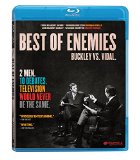| Reviews & Columns |
|
Reviews DVD TV on DVD Blu-ray 4K UHD International DVDs In Theaters Reviews by Studio Video Games Features Collector Series DVDs Easter Egg Database Interviews DVD Talk Radio Feature Articles Columns Anime Talk DVD Savant Horror DVDs The M.O.D. Squad Art House HD Talk Silent DVD
|
DVD Talk Forum |
|
|
| Resources |
|
DVD Price Search Customer Service #'s RCE Info Links |
|
Columns
|
|
|
Best of Enemies
The Movie:
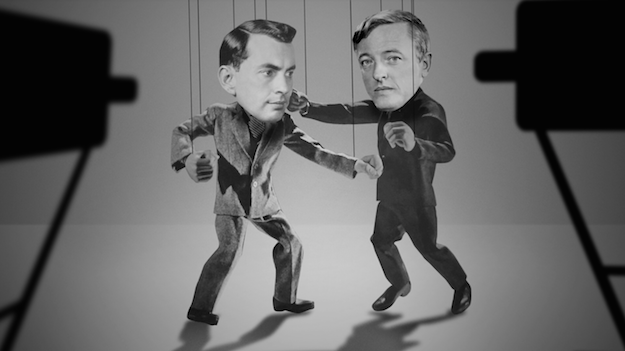
If there is a major takeaway from the new documentary Best of Enemies, it is the revelation that there was a time before TV punditry. What a strange, less cluttered -- and quieter -- time it must have been.
A series of ten debates between posh lefty intellectual Gore Vidal and posh righty intellectual William F. Buckley, Jr., televised in 1968, are Best of Enemies' main concern. The documentary posits that today's proliferation of shouting heads on cable news can be traced back to this very moment in history. Of course, Buckley and Vidal are more articulate and funnier than the average party shill to pop in on Fox News or MSNBC, but today's mainstream rock music ain't like it was in '68 either.
The whole reason these debates came to be is that ABC News was dramatically low on money at the time. They could not afford to do start-to-finish coverage of the Republican and Democratic National Conventions like their more successful competition, NBC and CBS. Grasping at straws, they decided to do recap coverage at the end of each night, including a debate between a liberal and a conservative. The film states that no one at ABC thought this tactic would score them higher ratings than the other networks -- it was just something to do. They picked Bill Buckley because he was already known as a feisty, outspoken conservative who was not shy about getting himself in front of a TV camera. Then ABC picked Gore Vidal as his debate opponent because he was a similarly outsized personality, fond of TV appearances and bitterly opposed to everything Buckley stood for. (The feeling was mutual.)
Using the voice talents of Kelsey Grammer as Buckley and John Lithgow as Vidal, the film hopscotches between biographical vignettes about both of the combatants and chronological excerpts of the ten televised debates. Buckley founded the National Review, an influential conservative magazine, and he later became a pal and significant behind-the-scenes adviser of Ronald Reagan. Vidal, meanwhile, was an essayist and novelist whose new book at the time of the broadcasts, Myra Breckinridge (later made into a semi-notorious film maudit), was a sexually explicit satire with a transsexual heroine. Both men considered the existence of the other one a harbinger of doom for the United States.
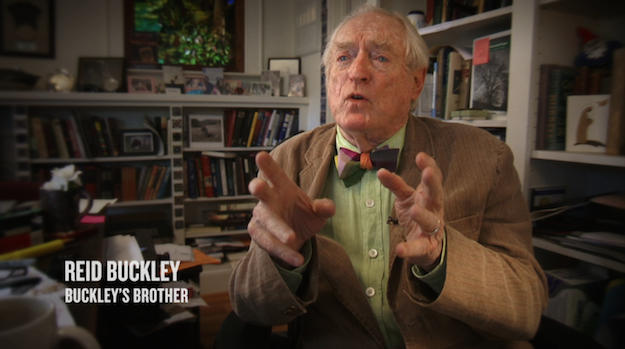
As promised, the two competitors come at each other with a ferocity that makes for excellent television -- and okay documentary filmmaking. Directors Robert Gordon (Shakespeare Was a Big George Jones Fan) and Morgan Neville (Twenty Feet from Stardom) often show heavily edited highlights of each debate and round up a bunch of talking heads to explain what basically happened. Ugh.
Don't get me wrong, these are great interview subjects with lots of fascinating things to say, including Buckley's equally opinionated brother Reid, the sharply analytical Christopher Hitchens, and the always affable Dick Cavett. But I get irked by the decision to put the emphasis on tempo above content. It's a common M.O. for modern documentary filmmakers, who want their films to be as entertaining as feature films. But I'm skeptical of the decision to hack many of these debates into bite-size nuggets followed by a few quick soundbites explaining what happened. What's wrong with letting these conversations -- the ostensible topic of the film -- play out before us? I'm not suggesting the film should have gone the Point of Order route and eschewed all commentary, but the balance between these elements is slightly tipped the wrong way. In a heavyweight bout, you want to hear some play-by-play, but you also want to see the fight.
The exception that proves the rule is Buckley's famed blow-up at Vidal in one of the last debates, after getting called a "crypto-Nazi." Gordon and Neville let us see more of this segment -- as Buckley and Vidal's mutual hatred builds steadily -- until finally, the whole thing reaches a violent climax that would reverberate throughout both men's lives for years afterwards.
Sometimes with documentaries, the importance of the subject matter can be mistaken for the importance of the film itself. Best of Enemies is not an important film. It is a slight, entertaining film about two vitally important figures in American politics and culture. As such, it is certainly worth watching, and if viewers are inspired to look a bit deeper into the work and lives of these two men, then maybe the film has done its job.
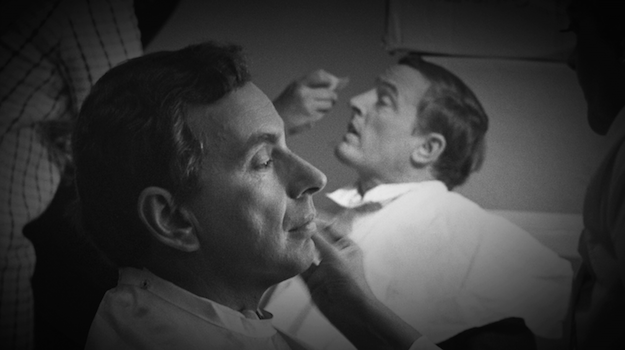
The Blu-ray
The Video:
The movie's AVC-encoded 1080p 1.78:1 presentation is an expected mishmash of video and film sources, although surprisingly none of it seems to be taken from compressed digital sources. This means that the worst-looking of the lot is just original analog video material from the late '60s (sometimes blown up to fill the 16 x 9 frame, sometimes not). Much of the film material -- even the beaten up archival stuff -- demonstrates surprising clarity and detail. The present-day interview material, shot in HD, is obviously the best-looking footage. Magnolia's disc, as per usual, sports a generous bitrate, creating no noticeable noise or artifacting beyond what is native to the original sources.
The Audio:
You gotta admit: it's a little funny to settle in for a political documentary and be greeted by a trailer for DTS-HD sound. Even so, the DTS-HD MA 5.1 surround mix is put to good use, as the sound design is actually quite busy and layered. Jonathan Kirkscey's score often calls to mind the Moog-heavy compositions of Wendy Carlos, and has a quite powerful full-range sound. The disc also offers English SDH, plus French and Spanish subtitles.
Special Features:
(HD, 1:05:40 total) - A fascinating collection of additional soundbites and analysis from many of the interviewees, including TV host Dick Cavett and Buckley's brother Reid. Of all these clips, the footage of the late Christopher Hitchens is the most useful addendum to the film because his comments tend to complicate the narrative of Buckley and Vidal, pointing out the less cut-and-dry aspects of their ideologies, as well as their oft-overlooked political similarities.
Final Thoughts:
The idea of politics as showmanship is not new, but political showmanship has rarely been executed in such an entertaining fashion as in the erudite catfight that was the Buckley-Vidal TV debates. The documentary Best of Enemies effectively demonstrates why the debates became national news and how they have irrevocably impacted the media in the decades since. It's a little less effective at letting us actually witness history as it was made. This is a story that deserves a little more depth in the re-telling, but nonetheless this slick abridgment still comes Recommended.
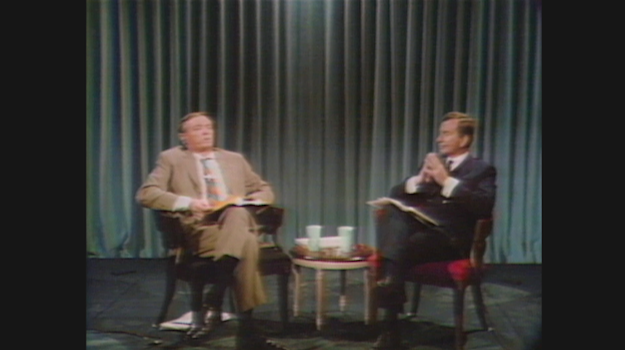
Justin Remer is a frequent wearer of beards. His new album of experimental ambient music, Joyce, is available on Bandcamp, Spotify, Apple, and wherever else fine music is enjoyed. He directed a folk-rock documentary called Making Lovers & Dollars, which is now streaming. He also can found be found online reading short stories and rambling about pop music.
|
| Popular Reviews |
| Sponsored Links |
|
|
| Sponsored Links |
|
|
| Release List | Reviews | Shop | Newsletter | Forum | DVD Giveaways | Blu-Ray | Advertise |
|
Copyright 2024 DVDTalk.com All Rights Reserved. Legal Info, Privacy Policy, Terms of Use,
Manage Preferences,
Your Privacy Choices | |||||||









